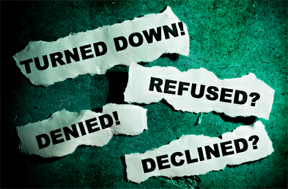 Many freelance writers insist that persistence produces talent rather than inspiration, or at least, 70 percent persistence and 30 percent = inspiration. The talent in freelance writing is in marketing rather than in actual writing. Sometimes the acceptance of a manuscript or an article seems a question of editorial accident and not a circumstance of clever salesmanship. Let’s suppose you’ve written an excellent story and sent it to an editor. The odds of acceptance are threatened by a variety of factors.
Many freelance writers insist that persistence produces talent rather than inspiration, or at least, 70 percent persistence and 30 percent = inspiration. The talent in freelance writing is in marketing rather than in actual writing. Sometimes the acceptance of a manuscript or an article seems a question of editorial accident and not a circumstance of clever salesmanship. Let’s suppose you’ve written an excellent story and sent it to an editor. The odds of acceptance are threatened by a variety of factors.
1. Consider the limited experience of the editor.
We all know that the story interests us because it vividly fleshes out phases of life that we have experienced. For example, a story dealing with the wonders of horseback riding on the beach will mean little to a business executive who rides the subway five days a week; whereas an editor who has felt the soft muzzle of a horse within his hand or experienced horseback riding through the meadows might rate the same story as “the gem” of the year. A good strategy is to keep the manuscript going until it arrives at the desk of an editor who values the deep passions of your story.
2. Editorial mood is a regular variable.
Most writers think their story is excellent and correlates with the reader’s feelings of the moment. A second reading at another time might completely replace the original feelings. If an editor rejects your article on this basis, then continue to submit it to other editors, and then re-submit it to the editor who first had rejected it.
3. Too many submissions impact a decision.
For instance, the culinary chef who has to taste test twenty varieties of apple pies to choose the perfect one; after the fifth pie, his taste buds become numb. The same is true of manuscripts and query letters. From my experience in judging prize stories, I know it is impossible for the editor to tell what is the best article after he has received a hundred other stories, many of which have the same theme. To decide on the best story, the editor weeds out a number of submissions each day and then reads and reviews the remaining. In many editorial offices the editor finds it impossible to hold manuscripts for more than a week because he has an avalanche of submissions that demand his attention. The last manuscript read during the day has a lesser chance than the first one read. An editor might return a query letter or article simply because he has mental fatigue rather than discovering errors in the article. Do you think this rejection warrants an adequate reason to feel unhappy? Of course not–send it out again.
4. The dislikes and superstitions of publishers and editors can hinder acceptance.
For example, I once sent what I thought was an excellent story to an editor who had already bought four articles from me. When the editor returned my article, I was surprised. I felt certain the editor would also accept my fifth article. The editor returned my article because the publisher had some partial opinions about the people whom I had interviewed for my article. It is unreal to discover such idiosyncrasies except by experience, so keep the submission process going.

5. Current events can affect selling your articles.
A story about political candidates will have a chance of success when political candidates are in the public’s eye.
6. Editorial policy may influence rejection.
For example, some health magazines attempt to print nothing about how obesity in America is negatively affecting the family structure in society, while other publications don’t mind covering it if it’s supported by recent research and facts. In this case it is important to keep submitting the manuscript until fits in with the editorial policy.
7. Economic conditions often cause rejections.
During the last year many magazines and websites have changed editorial staffs several times and frequently have changed management. Usually the publishers purchase very little freelance material during these periods of uncertainty. As a result, a manuscript or query letter which finds its way into one of these disorderly offices has little chance. Keep the submission process going!
As you can see from this article, editors do reject articles, stories and manuscripts that clearly show skill, technique, originality, and a pleasing appearance. The writer who states, “I quit writing because my stuff came back too frequently,” is all wrong. Success is nothing but perseverance.



